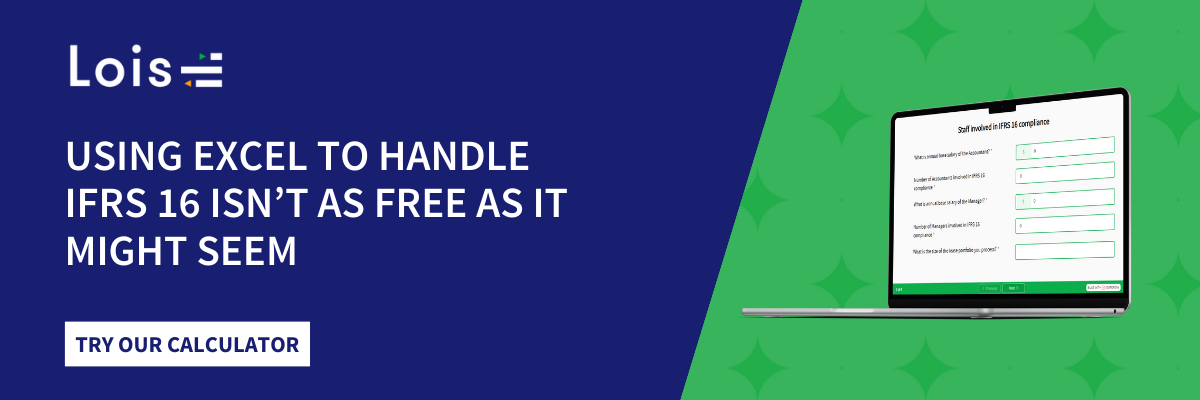In the complex terrain of financial reporting, IFRS 16 looms as a formidable challenge that organisations must navigate accurately and with strategic foresight. The transition to this leasing standard has ushered in a new era of financial scrutiny and operational re-evaluation. Our recent webinar "How to Make IFRS 16 Quick, Painless, and Strategic at Year-End," delved into this topic, providing invaluable insights into optimising the IFRS 16 compliance process. This blog highlights key strategies and best practices for efficient IFRS 16 management.
The Journey from Compliance to Strategy
The implementation of IFRS 16 marked a significant shift in lease accounting, requiring organisations to incorporate lease liabilities into their balance sheets. Initially, businesses grappled with establishing compliance mechanisms, often resorting to manual calculations and spreadsheet-based record-keeping. However, the focus has gradually shifted towards streamlining and refining these processes. By taking a helicopter view of existing policies and leveraging advanced lease accounting software solutions, companies can transform IFRS 16 compliance from a regulatory burden into a strategic advantage.
Key Strategies for Efficient IFRS 16 Management
- Comprehensive Process Review: The cornerstone of effective IFRS 16 management is a thorough review of current processes and policies. This step allows organisations to identify bottlenecks, outdated practices, and areas ripe for automation. Given that many initial IFRS 16 compliance frameworks were developed under time pressure, a periodic review offers an opportunity to align practices with current business needs and technological advancements.
- Technological Empowerment: The evolution from manual spreadsheet-based processes to utilising specialised software such as LOIS represents a paradigm shift in lease accounting. These platforms offer functionalities that drastically reduce manual labour, enhance accuracy, and provide strategic insights through data analytics. The selection of such tools should be a deliberative process, ensuring they are scalable, user-friendly, and capable of integrating with existing systems.
- Cross-functional Collaboration: Effective IFRS 16 compliance is not the sole purview of the finance department; it necessitates active participation from across the organisation. Engaging stakeholders from property management, IT, and other relevant departments in the software selection and implementation process ensures that the chosen solution caters to the multifaceted needs of the organisation.
- Embracing Continuous Improvement: In a business landscape characterised by rapid change, organisations must adopt an agile approach to IFRS 16 compliance. This involves staying abreast of regulatory changes, economic trends, and technological innovations. The advent of AI and machine learning offers new opportunities for automating data collection and analysis, promising further efficiencies and strategic insights.
- Prioritising Data Quality and System Integration: At the heart of a streamlined IFRS 16 process lies the integrity of data and the seamless interaction between systems. Ensuring that data flows effortlessly between ERP systems, leasing software, and other analytical tools is critical for maintaining compliance, accuracy, and making informed decisions.
Looking Ahead: Strategic Implications of IFRS 16
As organisations refine their approach to IFRS 16 compliance, the potential for leveraging leasing data as a strategic resource becomes increasingly apparent. Beyond mere compliance, the insights derived from leasing arrangements can inform broader business strategies, operational efficiencies, and financial planning. In this context, IFRS 16 is not just a regulatory hurdle but a catalyst for organisational improvement and innovation.
Conclusion
The journey towards making IFRS 16 compliance quick, painless, and strategic is ongoing. By focusing on comprehensive process reviews, leveraging technology, fostering collaboration, and embracing continuous improvement, organisations can not only navigate the complexities of IFRS 16 but also harness it as a tool for strategic planning and competitive advantage. The insights shared in our webinar underscore the importance of adopting a holistic approach to IFRS 16, one that transcends compliance to unlock strategic value and drive business success in the year ahead and beyond.

